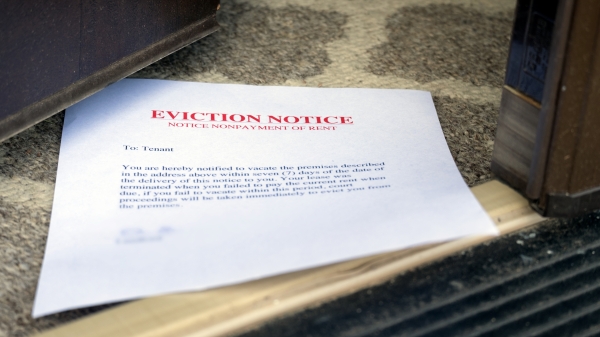The coalition calling for an end to delays in patient care caused by prior authorizations has grown to 30 organizations representing healthcare providers and patient advocates across Alabama.
Prior authorizations are insurance company policies that require physicians to seek insurance companies’ approval before patients can access treatment, service or medication.
The “Fix Prior Authorization” campaign, launched in August by doctors with the Medical Association of the State of Alabama, is challenging these insurance requirements that can cause patients to wait days, weeks or even months for necessary care.
Members of the coalition say prior authorization delays can also lead to higher healthcare costs, worsening diseases and even death in some cases.
“We can no longer let paperwork and red tape stand in the way of effective medical care. Patients like mine deserve better,” said Dr. William Kilgo, the Director of the Neuroimmunology and MS Clinic at USA Health in Mobile.
One of his patients with multiple sclerosis saw her condition worsen while waiting for her insurance company to approve the medication she needed to keep her MS under control.
The patient went from being able to walk and manage her disease to needing a wheelchair because of the delay, said Dr. Kilgo.
“She had gone from being ambulatory and managing her disease, to facing a life forever altered by this unnecessary and infuriating delay in her care because of prior authorization requirements,” he said.
Prior authorizations were once reserved for high-cost treatments, but today, even routine care can be delayed or denied because of these insurance requirements.
“The problem is it has now morphed into requiring paperwork for very routine medications, routine imaging, routine care and it causes significant delays in treatment,” said Dr. Amanda Williams, president of the Medical Association and a psychiatrist in Montgomery. “Usually, it can take days to get a response and often it will just be a denial and require an appeal and then take even longer.”
The coalition is urging Alabamians who experience delays in treatment share their stories at www.ALFixPriorAuth.com. The coalition is meeting with health insurers to push for changes. Stories submitted through www.ALFixPriorAuth.com will help support these efforts to fix prior authorization in Alabama.
Dr. Ryan Mathew of Northport, who serves as president of the Alabama Society of the Rheumatic Diseases, said delays in treatment caused by prior authorizations lead to higher healthcare costs and can worsen the progression of diseases.
“Needless time and resources are wasted completing prior authorizations that increase the cost of healthcare for everyone. Moreover, delays in starting treatment could worsen debility due to progression of joint damage, lead to renal failure and in some instances increase risk of death,” said Dr. Mathew.
Representatives from several other organizations in the coalition offered the following statements in support of fixing prior authorizations:
- Dr. Harry J. McCarty, Alliance Cancer Care of Huntsville: “As physicians, we want to provide the highest quality care modern medicine can provide…What we are encountering, however, is a level of scrutiny so severe – and a system so difficult to work within – that it becomes almost impossible to provide excellent patient care. There is literally almost nothing in medicine that is a bigger impediment to patient care than these barriers put up by the very health plans that are supposed to be helping us serve our patients.”
- Dr. Sean Vanlandingham of Clanton, who serves as president of the Alabama Chapter of the American College of Emergency Physicians: “Far too often, patients arrive in emergency departments seeking advanced diagnostics such as CT scans because they’ve encountered delays or barriers in accessing these services through their primary care physicians. These delays are frequently the result of cumbersome prior authorization requirements imposed by insurance companies, leaving patients with limited options. This exacerbates the strain on our already overburdened emergency care system.”
- Dr. Ross B. Vaughn of Tuscaloosa, with the Alabama Chapter of the American College of Physicians: “There is no convincing evidence that prior authorizations have resulted in better health outcomes. On the contrary, they represent a barrier preventing patients from receiving the care they need, leading to delays in treatment, administrative burdens for an already overtaxed healthcare workforce, and patient frustration.”
- Mobile’s Dr. Karen Baker with the Alabama Society of Allergy, Asthma and Immunology: “Prior Authorizations are a major impediment to patient care. To get even routine maintenance allergy medications such as asthma inhalers and nasal sprays, as well as more specialty biologic medications approved, requires more and more staff time to complete paperwork, deal with denials and submit appeals. This leads to delayed and sometimes suboptimal care for patients.”
- Chief Advocacy Officer Landon Nichols with Five Horizons Health Services in Tuscaloosa: “HIV care has changed dramatically in recent years. With modern treatments, most clients can reach viral suppression – known as undetectable – in just a few months, meaning their HIV is untransmittable to partners. Interruptions and delays in medication availability caused by prior authorization requirements contribute to the spread of HIV by hindering clients’ ability to achieve and maintain viral suppression.”
- Alabama Dermatology Society’s Dr. Scott VanLoock of Mobile: “Prior authorizations are a tool that insurance companies use to practice medicine. The prior authorization process assumes that the insurance company knows what’s best for the patient. Staff time is diverted from patient care. Instead of returning your call, the nurse is preoccupied filling out paperwork or spending time on the phone with the insurance company.”
The 30 Alabama organizations in the coalition are:
- Alabama Academy of Eye Physicians and Surgeons
- Alabama Academy of Family Physicians
- Alabama Academy of Neurology
- Alabama Cancer Congress
- Alabama Chapter of the American Academy of Pediatrics
- Alabama Chapter of the American College of Cardiology
- Alabama Chapter of the American College of Emergency Physicians
- Alabama Chapter of the American College of Physicians
- Alabama Chapter of the American College of Surgeons
- Alabama Dermatology Society
- Alabama Gastroenterological Society
- Alabama Medical Directors Association
- Alabama Orthopaedic Society
- Alabama Primary Healthcare Association
- Alabama Psychiatric Physicians Association
- Alabama Rare
- Alabama Section of the American College of Obstetricians and Gynecologists
- Alabama Society of Addiction Medicine
- Alabama Society of Allergy, Asthma and Immunology
- Alabama Society of Anesthesiologists
- Alabama Society of Otolaryngology, Head and Neck Surgery
- Alabama Society of the Rheumatic Diseases
- Alabama Urology Network
- Aledade
- American College of Nurse Midwives
- Five Horizons Health Services
- Healthcare Leaders Association of Alabama
- Medical Association of the State of Alabama
- Neurological Society of Alabama
- Nurse Practitioners Alliance of Alabama



















































